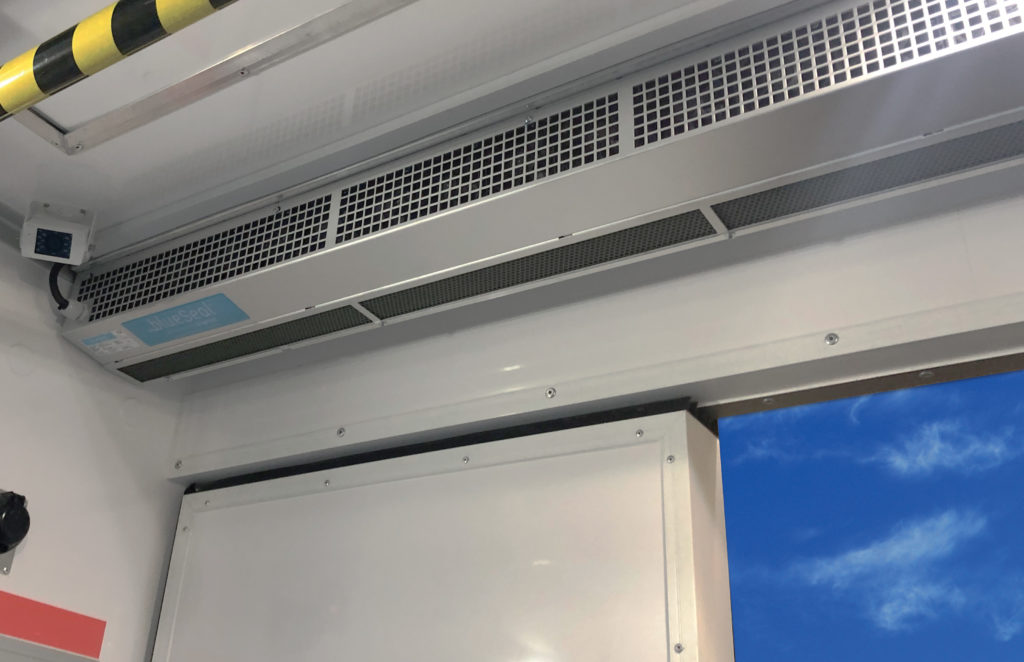This year has seen huge leaps forward with the development of refrigerated fully electric HGV’s as viable options have started to enter the market and go the distance for commercial demands. With the conversation centering around longer battery life and lighter vehicles, Brightec asks whether they are doing enough to control energy loss during deliveries when doors are opened.
BlueSeal air curtains started out life as a way to control energy loss at the most crucial stage of the cold chain during the development of early eutectic refrigeration system as a zero-emission solution to transporting goods. By identifying door openings as the leading cause of energy loss, BlueSeal was developed to manage this in the most energy-efficient way that would not be intrusive way to drivers.
Modern vehicles are highly adept at preserving cold air during transit with more effective insulation and systems in place to circulate air through the cargo space when doors are closed. However, once doors are opened during deliveries all of this becomes obsolete as goods are exposed to the elements.
Brightec founder, Dr Hans Opdam says, “We are often surprised at how modern vehicles neglect climate control at the point that the door opens. If your fridge door is left open, you’d get a shock with your energy bill and have to throw out food as it becomes easily spoiled. Refrigerated transport is no different and the only way that this new technology will be used to its full potential is if we get to grips with managing infiltration heat loads effectively.”

BlueSeal provides an effective barrier between inside and outside temperatures during loading and unloading by creating a laminar air flow that is carefully calculated to reduce heat transfer at an optimum efficiency. It is a common misconception that air curtains are more effective with a higher air speed, as this becomes counterproductive as it draws in surrounding air and BlueSeal is the culmination of decades of research by physicists to fine tune its performance.
Brightec ran a series of simulations to understand the real world cost of diesel that is spent during door openings without a means to control temperature loss, and even with conservative estimates this produced some shocking results. They concluded that on average distribution runs door openings drastically increase the cooling energy use by 3 to 5.5 fold. This translates to fuel increases of several hundreds of litres a year for panel vans, to several thousand litres a year for trucks and semi-trailers, only due to door openings. As EV technology starts to replace diesel use, and the on-board energy capacity will thus be more limited, it is an important consideration for operators to reduce this energy waste to allow refrigeration units to operate on the road for longer.
The control unit BlueControl – integrated in BlueSeal – was developed with the future of EV in mind, and has seen recent advancements designed around preserving battery life and encouraging stricter regimes of door closures. The new BlueSeal models include this customisable control unit that alerts drivers when doors are opened for a set amount of time and can be automatically switched off when the battery drops below a certain point. This can also be combined with a choice of light, magnetic and infra-red sensors to automatically detect when doors are open to shut the unit off automatically when not in use.
This year BlueSeal will release an extra advanced form of vehicle climate control yet with BlueSmart, a peripheral device that plugs into existing BlueControl units and regulates air flow based on the temperature differences between inside and outside air and other parameters. By doing this, the air curtain will operate at maximum efficiency at all times and lead to even greater energy savings for vehicle operators, going hand in hand with the future of zero-emission transport.





